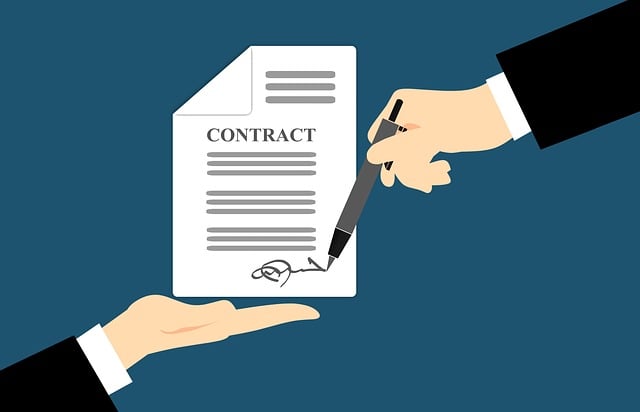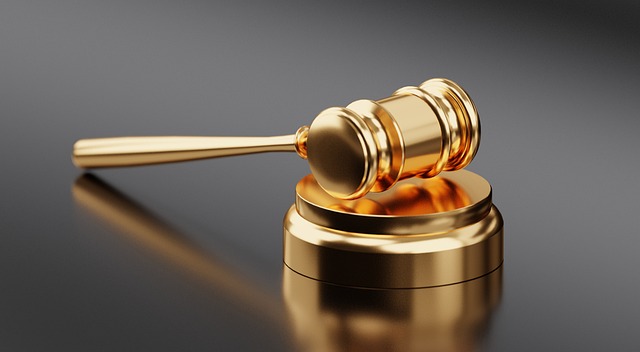In The Woodlands legal arena, a proficient criminal lawyer is integral for navigating the intricate evidence rules and ensuring fair trials. These attorneys are well-versed in the Texas Rules of Evidence, adept at excluding inadmissible evidence, and vigilant in protecting their clients' rights throughout the judicial process. They meticulously examine all evidence, employ strategic insights to fortify defenses, and actively challenge any testimony or physical evidence that doesn't meet legal criteria. The Woodlands criminal lawyers are proactive, utilizing their extensive knowledge of procedural rules and legal precedents to safeguard against prejudicial or inadmissible evidence, thereby upholding the principles of justice. Their role is critical in managing evidence presentation, scrutinizing prosecution evidence for admissibility, and ensuring that trials are based on reliable and pertinent information. Their expertise in maintaining the integrity of the judicial process is indispensable for fair case outcomes within The Woodlands legal system.
Navigating the complexities of the legal system can be daunting, particularly when faced with the challenges of managing inadmissible evidence. This article delves into the intricacies of improper evidence and the critical measures taken by a Woodlands criminal lawyer to suppress such testimony. It outlines the strategic approaches defense attorneys employ to identify and exclude evidence that could skew the course of justice. Furthermore, it examines the significant repercussions inaccurate testimonies can have on case verdicts and provides insight into mitigation tactics. A compelling case study illustrates a high-profile legal battle where questionable testimony was successfully suppressed, underscoring the importance of vigilant legal representation.
- Navigating Legal Hurdles: The Role of a Woodlands Criminal Lawyer in Managing Challenges of Inadmissible Evidence
- Identifying and Excluding Improper Evidence: Strategies Employed by Experienced Defense Attorneys
- The Impact of Inadmissible Testimony on Case Outcomes and How to Mitigate Its Effects
- Case Study: Successfully Suppressing Questionable Testimony in a High-Profile Legal Battle
Navigating Legal Hurdles: The Role of a Woodlands Criminal Lawyer in Managing Challenges of Inadmissible Evidence

Navigating the complexities of legal proceedings in The Woodlands can be a daunting task, particularly when faced with challenges related to inadmissible evidence. A skilled Woodlands criminal lawyer plays a pivotal role in these scenarios, meticulously examining the evidence at hand to identify potential issues that could lead to its exclusion from the case. Their expertise is instrumental in understanding the nuances of the Texas Rules of Evidence and how they apply within the jurisdiction’s court system. These attorneys work diligently to ensure that any testimony or physical evidence that does not meet the admissibility standards set forth by law is effectively challenged and, if possible, suppressed. Their strategic approach involves a careful analysis of the case details, which allows them to craft compelling arguments that can significantly impact the outcome of a trial. By leveraging their legal acumen and familiarity with procedural rules, Woodlands criminal lawyers are adept at safeguarding their clients’ rights and interests in a court of law. Their role is not merely reactive but proactive, as they anticipate and counteract attempts by the prosecution to introduce evidence that may be prejudicial or otherwise inadmissible. The strategic foresight and legal expertise of these professionals are critical for upholding justice and ensuring a fair trial for those accused in The Woodlands.
Identifying and Excluding Improper Evidence: Strategies Employed by Experienced Defense Attorneys

In the pursuit of justice, experienced defense attorneys in the Woodlands and beyond employ a suite of strategies to identify and exclude improper evidence. A diligent defense lawyer understands that the admissibility of evidence is paramount to the fairness of a trial. They meticulously review all evidence presented by the prosecution to ensure it meets the legal standards required for introduction in court. This involves scrutinizing the evidence for any potential issues, such as reliability or relevance, and challenging its admissibility through pre-trial motions. Defense attorneys adept in criminal law proceedings in areas like The Woodlands know that suppressing inadmissible testimony is crucial to safeguarding their clients’ rights. They leverage their knowledge of legal precedents and procedural rules to argue for the exclusion of evidence that may have been obtained illegally or is otherwise tainted. By employing a proactive approach, these attorneys can significantly impact the outcome of a case by ensuring that only legitimate and probative evidence is considered by the court.
Furthermore, The Woodlands criminal lawyers stay abreast of the ever-evolving standards for evidence admissibility, as established by both statutory law and judicial decisions. They are adept at navigating complex legal landscapes, including the intricacies of hearsay rules, the confrontation clause, and the exclusionary rule. Their expertise enables them to effectively challenge the prosecution’s case, often leading to the suppression of evidence that could otherwise skew the trial in the government’s favor. This rigorous advocacy is essential for maintaining a fair and impartial judicial process, where evidence is thoroughly vetted before it reaches a jury. The role of a skilled defense attorney in identifying and excluding improper evidence cannot be overstated; their efforts are critical in upholding the legal system’s integrity.
The Impact of Inadmissible Testimony on Case Outcomes and How to Mitigate Its Effects

When inadmissible testimony enters the courtroom, it can significantly skew the outcome of a case. This is particularly true in jurisdictions where legal standards for evidence are stringently applied, as in those areas governed by the rules of evidence. Inadmissible testimony, if not properly identified and excluded, can introduce unreliable or prejudicial information that may sway the decision-making process. The role of a seasoned criminal lawyer from The Woodlands, with expertise in navigating the complexities of evidentiary law, is pivotal in such scenarios. They meticulously scrutinize the evidence to anticipate and challenge the admissibility of testimony that could compromise their client’s case. By employing a proactive approach to identify potential issues before they arise in court, these legal professionals can effectively mitigate the impact of inadmissible testimony. Their efforts ensure that the proceedings remain fair and that the verdict is based on evidence that meets the requisite legal standards, thereby upholding the integrity of the judicial system. In instances where such testimony does slip through the initial defense screens, a skilled attorney from The Woodlands will be adept at employing motions to suppress and other legal maneuvers to minimize its influence on the jury’s perception and ultimately work towards a favorable resolution for their client.
Case Study: Successfully Suppressing Questionable Testimony in a High-Profile Legal Battle

In conclusion, navigating the complexities of legal proceedings, particularly those involving inadmissible evidence and testimony, is a multifaceted challenge that demands meticulous attention and expertise from legal professionals. The pivotal role of a Woodlands criminal lawyer in managing such challenges cannot be overstated. Through identifying improper evidence and deploying effective strategies to exclude it, these legal experts play a critical part in upholding justice and ensuring fair outcomes for their clients. As evidenced by a recent high-profile case where questionable testimony was successfully suppressed, the stakes are high, and the consequences of improper evidence can be significant. The insights provided here underscore the importance of engaging a seasoned Woodlands criminal lawyer who not only understands the intricacies of the law but also possesses the skill to effectively challenge inadmissible testimony, thereby safeguarding the rights of those within the judicial system.



